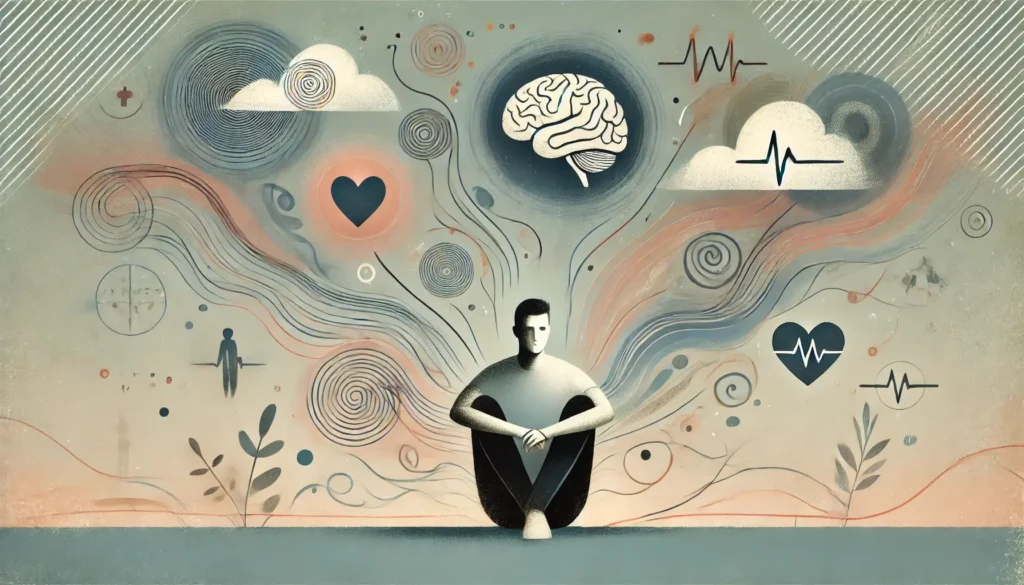Anxiety is a normal response to stress or danger, but for many, it becomes a chronic condition that interferes with daily life. Anxiety disorders are among the most common mental health issues worldwide. This blog delves into the causes, symptoms, and treatment options for anxiety disorders.
What Are Anxiety Disorders?
Anxiety disorders are a group of mental health conditions characterized by excessive fear, worry, or dread that affects daily functioning. Common types include:
1. Generalized Anxiety Disorder (GAD)
A condition involving persistent and excessive worry about various aspects of life.
2. Panic Disorder
Characterized by sudden episodes of intense fear or panic, often accompanied by physical symptoms like heart palpitations or shortness of breath.
3. Social Anxiety Disorder
A fear of social situations and being judged or scrutinized by others.
4. Specific Phobias
Intense fear of specific objects or situations, such as heights or spiders.
Symptoms of Anxiety Disorders
Symptoms vary by type but commonly include:
- Physical Symptoms: Rapid heartbeat, sweating, trembling, headaches, and muscle tension.
- Emotional Symptoms: Restlessness, irritability, and feelings of dread.
- Cognitive Symptoms: Difficulty concentrating, overthinking, and catastrophic thoughts.
- Behavioral Symptoms: Avoidance of anxiety-inducing situations or activities.
Causes of Anxiety Disorders
Several factors can contribute to the development of anxiety disorders, including:
1. Genetic Factors
A family history of anxiety can increase the likelihood of developing the condition.
2. Brain Chemistry
Imbalances in neurotransmitters like serotonin and dopamine play a role.
3. Environmental Triggers
Stressful life events, trauma, or abuse can contribute to anxiety.
4. Personality Factors
Individuals with certain personality traits, such as perfectionism, may be more prone to anxiety.
How to Manage and Treat Anxiety Disorders
Treatment can significantly improve the quality of life for those with anxiety disorders. Here are effective approaches:
1. Therapy
- Cognitive Behavioral Therapy (CBT): Helps individuals identify and change negative thought patterns.
- Exposure Therapy: Gradually reduces fear through controlled exposure to anxiety triggers.
2. Medications
- Anti-anxiety Medications: Such as benzodiazepines for short-term relief.
- Antidepressants: Help manage chronic anxiety.
3. Lifestyle Changes
- Regular exercise and a balanced diet.
- Adequate sleep and hydration.
- Mindfulness practices like meditation and yoga.
4. Support Groups
Talking to others with similar experiences can provide comfort and practical advice.
When to Seek Professional Help
It’s important to consult a psychiatrist or mental health professional if:
- Anxiety interferes with work, relationships, or daily life.
- You experience frequent panic attacks.
- Self-help techniques are not effective.
Conclusion
Anxiety disorders are highly treatable with the right combination of therapy, medication, and lifestyle adjustments. Remember, seeking help is a sign of strength, not weakness.
If you or someone you know is struggling with anxiety, don’t hesitate to reach out to a mental health professional. Support is always available, and recovery is possible.






